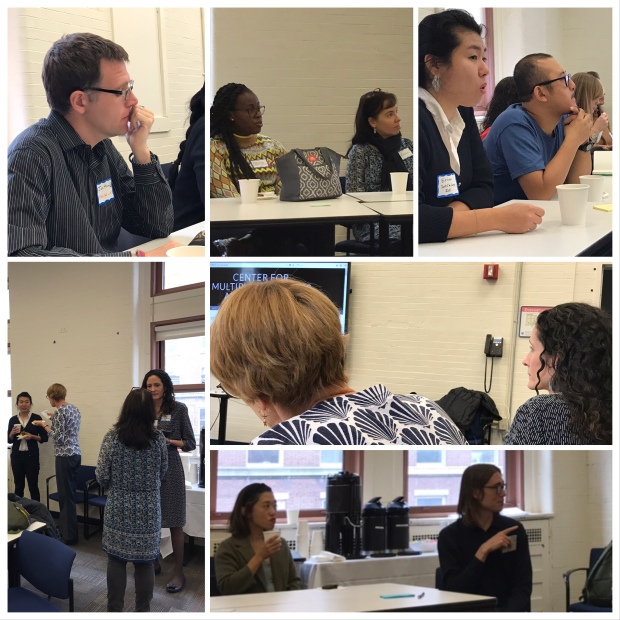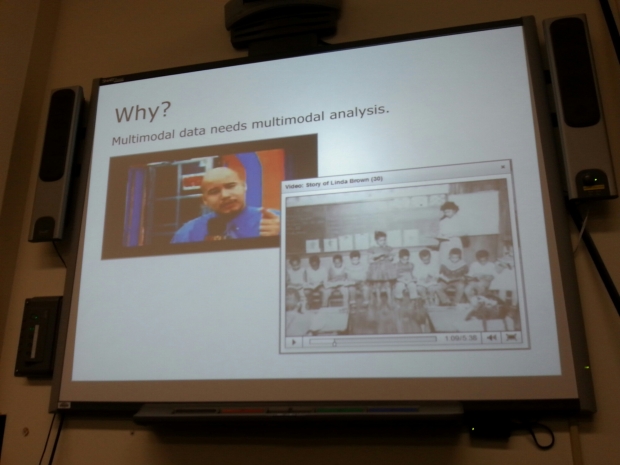From our friends at the International Linguistic Association:
63rd Annual Conference of the International Linguistic Association
FINAL CALL: Extended Proposal Deadline: February 15, 2018
When: April 20-22, 2018
Where: St. John’s University, New York City
Theme: Language and Religion
The theme of this conference, “Language and Religion,” draws on the universal notion of a bond between speech and worship. This bond fosters group identity and determines social roles. To the degree that language and religion shapes self-identification as the basis for determining one’s membership in the social group, it likewise establishes perspectives on those considered as outsiders. One of the most significant indicators of this emic-etic distinction involves the use of language appropriate to insiders that reveals who is a member and who is not, such as in the classic example of the shibboleth. While we invite submissions from all areas of linguistics, topics of interest to the conference theme include, but are not limited to, scholarly studies of liturgical language and speech acts, religious diglossia, calques and traductology in sacred texts, religion as political language, etc.
Topics may include (but are not limited to) the following:
- hieratic language
- the speech registers of different religious practices
- ritual speech and performance
- languages used in religious practices and texts (e.g., Latin, Hebrew, Arabic, etc.)
- translation of sacred texts
- use of the vernacular in the liturgy
- language in missionary activity
- language of spiritual experience
- intelligibility of religious texts
- religion and language variation
- religion and cognition
- religion and the internet
- language learning for religious purposes
- language and religion under different political circumstances (e.g., colonialism, capitalism, autocracy)
In keeping with the ILA tradition, we also invite individual papers or posters on other areas of linguistics.
Invited Plenaries: Asma Barlas, George Jochnowitz, Charlotte Linde, Nicholas Ostler, Peter Unseth
Guidelines for Proposals
A paper or poster title and anonymous abstract of between 300 and 400 words, excluding references, is required along with a summary abstract for the conference booklet of no more than 150 words. On a separate page, the primary author’s name, institutional affiliation, email address, and phone number, along with any additional authors’ names/affiliations, must be included. Proposals will be blind-reviewed for quality and originality.
Submissions should contain mainly new material and must not have been published previously in order to be considered. All proposals should be emailed in a MSWord (.doc, .docx) file and using “ILA2018” in the subject line, to Ms. Annika Wendt, ILA Secretary at awendt@ilaword.org by Thursday, February 15, 2018. Proposal acceptances will be sent by Saturday, February 24, 2018. The author(s) whose proposals have been accepted for the ILA Annual Conference must register before the registration deadline (Monday, March 12, 2018) in order to be included in the Conference Program.
Send inquiries to Michael Maiale, Coordinator, at michael.maialeila@gmail.com
Co-Chairs: Walter Petrovitz, wp@stjohns.edu; Kathleen O’Connor-Bater, oconnorbaterk@oldwestbury.edu


 re excited to welcome back to the Teachers College Community two TC alumni, Dr. Stephanie Schmier (C&T) and Dr. Tiffany DeJaynes (MST), as presenters for the next convening of the CMLL Brownbag Conversations series!
re excited to welcome back to the Teachers College Community two TC alumni, Dr. Stephanie Schmier (C&T) and Dr. Tiffany DeJaynes (MST), as presenters for the next convening of the CMLL Brownbag Conversations series!

 This year’s Call for Papers for the
This year’s Call for Papers for the 





